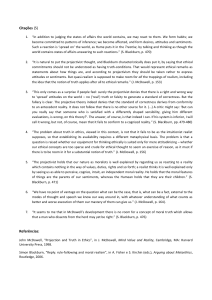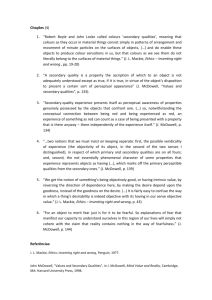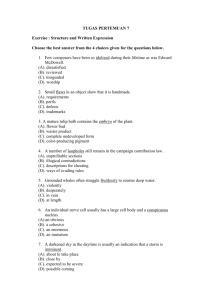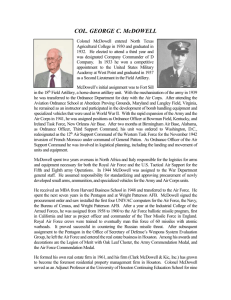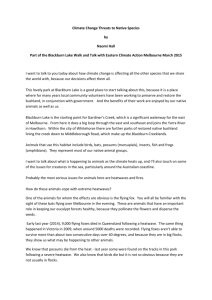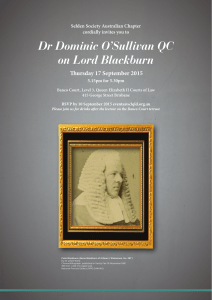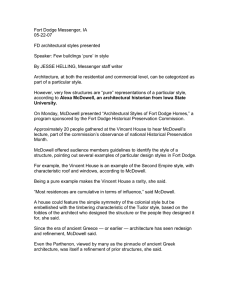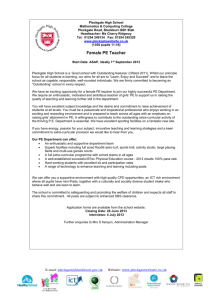quotes
advertisement
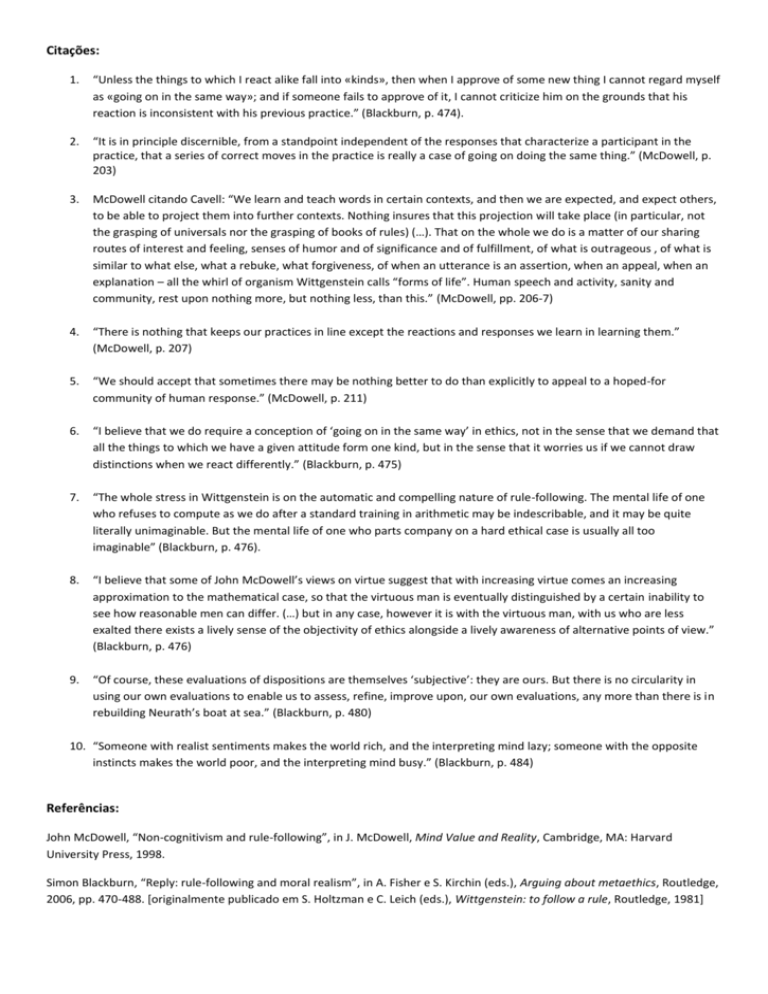
Citações: 1. “Unless the things to which I react alike fall into «kinds», then when I approve of some new thing I cannot regard myself as «going on in the same way»; and if someone fails to approve of it, I cannot criticize him on the grounds that his reaction is inconsistent with his previous practice.” (Blackburn, p. 474). 2. “It is in principle discernible, from a standpoint independent of the responses that characterize a participant in the practice, that a series of correct moves in the practice is really a case of going on doing the same thing.” (McDowell, p. 203) 3. McDowell citando Cavell: “We learn and teach words in certain contexts, and then we are expected, and expect others, to be able to project them into further contexts. Nothing insures that this projection will take place (in particular, not the grasping of universals nor the grasping of books of rules) (…). That on the whole we do is a matter of our sharing routes of interest and feeling, senses of humor and of significance and of fulfillment, of what is outrageous , of what is similar to what else, what a rebuke, what forgiveness, of when an utterance is an assertion, when an appeal, when an explanation – all the whirl of organism Wittgenstein calls “forms of life”. Human speech and activity, sanity and community, rest upon nothing more, but nothing less, than this.” (McDowell, pp. 206-7) 4. “There is nothing that keeps our practices in line except the reactions and responses we learn in learning them.” (McDowell, p. 207) 5. “We should accept that sometimes there may be nothing better to do than explicitly to appeal to a hoped-for community of human response.” (McDowell, p. 211) 6. “I believe that we do require a conception of ‘going on in the same way’ in ethics, not in the sense that we demand that all the things to which we have a given attitude form one kind, but in the sense that it worries us if we cannot draw distinctions when we react differently.” (Blackburn, p. 475) 7. “The whole stress in Wittgenstein is on the automatic and compelling nature of rule-following. The mental life of one who refuses to compute as we do after a standard training in arithmetic may be indescribable, and it may be quite literally unimaginable. But the mental life of one who parts company on a hard ethical case is usually all too imaginable” (Blackburn, p. 476). 8. “I believe that some of John McDowell’s views on virtue suggest that with increasing virtue comes an increasing approximation to the mathematical case, so that the virtuous man is eventually distinguished by a certain inability to see how reasonable men can differ. (…) but in any case, however it is with the virtuous man, with us who are less exalted there exists a lively sense of the objectivity of ethics alongside a lively awareness of alternative points of view.” (Blackburn, p. 476) 9. “Of course, these evaluations of dispositions are themselves ‘subjective’: they are ours. But there is no circularity in using our own evaluations to enable us to assess, refine, improve upon, our own evaluations, any more than there is in rebuilding Neurath’s boat at sea.” (Blackburn, p. 480) 10. “Someone with realist sentiments makes the world rich, and the interpreting mind lazy; someone with the opposite instincts makes the world poor, and the interpreting mind busy.” (Blackburn, p. 484) Referências: John McDowell, “Non-cognitivism and rule-following”, in J. McDowell, Mind Value and Reality, Cambridge, MA: Harvard University Press, 1998. Simon Blackburn, “Reply: rule-following and moral realism”, in A. Fisher e S. Kirchin (eds.), Arguing about metaethics, Routledge, 2006, pp. 470-488. [originalmente publicado em S. Holtzman e C. Leich (eds.), Wittgenstein: to follow a rule, Routledge, 1981]
